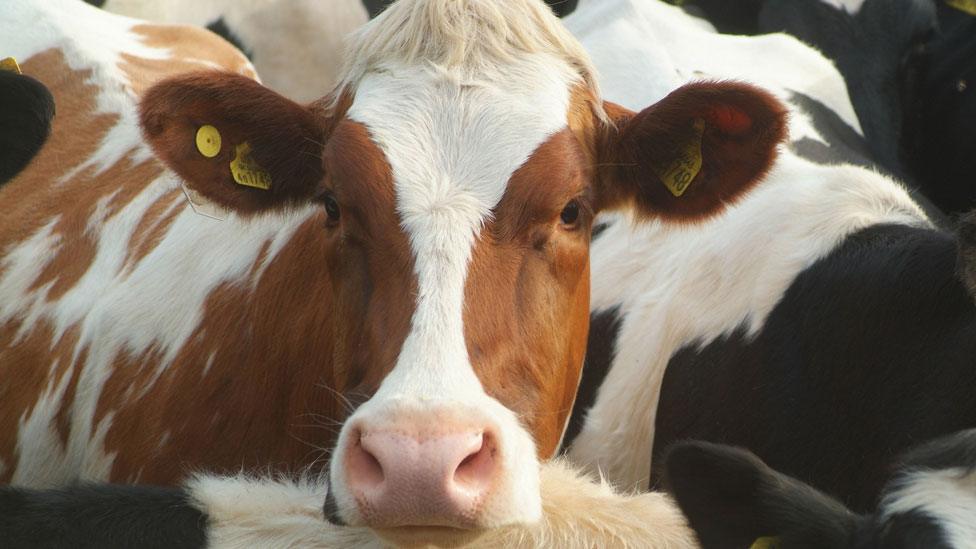Farmers urged to use genes in bovine TB fight
- Published
- comments
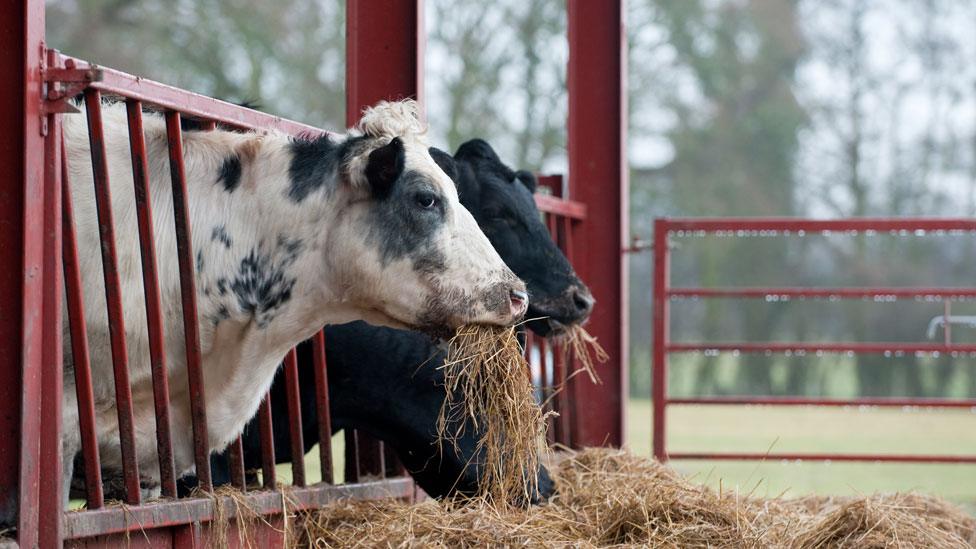
Farmers in parts of Wales badly hit by bovine TB are being urged to make breeding decisions that could improve resistance to the disease.
The Farmers' Union of Wales (FUW) said latest research on cattle genetics provided "another tool in the toolbox".
It recently held a workshop with the developers of a world-first index of bulls with more resistant bloodlines.
Since October, Welsh farmers have faced fresh restrictions designed to stamp out the infection., external
Hazel Wright, FUW's senior policy officer, said that under the circumstances it was "important to have the conversation" about genetic selection.
"Because there is no vaccine available at the moment we can't protect cattle as we would potentially against other diseases," she added.
"So, this is just another way of protecting your herd. It's not a silver bullet, but it may well be that on some farms TB is such a big issue that this is the road they decide to go down."
Funded by the Welsh and UK governments, the initial research into the genetics of bovine TB (bTB) was undertaken jointly by the University of Edinburgh's Roslin Institute , externaland Scotland's Rural College.
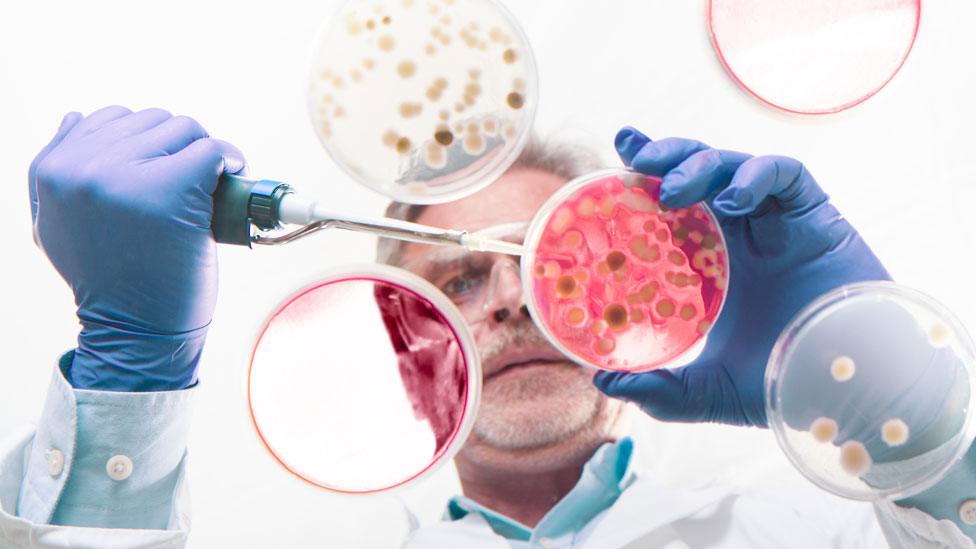
Their work showed genetic variation between animals and established the degree to which bTB resistance could be passed on.
That formed the basis of a genetic index, put together by the Agriculture and Horticulture Development Board (AHDB), external, which is funded by UK farmers to undertake research and development on their behalf.
The index allows farmers to check the degree of resistance to bTB a bull is predicted to pass on to his offspring, and is now available for all dairy breeds.
More traditional considerations when farmers breed cattle are physical traits as well as milk production, fat and protein levels.
Andy Dodd, technical manager at AHDB Dairy told BBC Wales, said use of the TB index should be seen as part of a farmer's "arsenal" to help reduce the risk.
He said: "Every farm should be looking at TB advantage when they're selecting bulls but it's got to be as a round package."
"I think we're a long way off full resistance within a herd, but as long as farmers are using positive TB-advantage bulls, we will start to see a reduction in the number of animals going off farm."
But he said it would be at least 10 years before we saw the full benefits.
Over the last 10 years about £150m has been paid to farmers whose animals have been destroyed through the Welsh Government's TB eradication programme
9,808 cattle were slaughtered in the 12 months to August 2017
But the latest figures also suggest bovine TB is at a 12-year low, with more than 95% of cattle herds in Wales currently free of the disease
New rules, branded as a "refreshed approach" to tackling the infection, have split the country into areas of low, intermediate and high risk, with about 60 farms which have chronic problems issued with bespoke action plans.
'Huge impacts'
Farming unions have described the measures as among the most demanding bTB rules in the world.
Farmer Emma Robinson talks of the 'huge impact' of a TB case - and how she 'felt a bit ashamed'
Emma Robinson of Grosmont Wood Farm in Monmouthshire - a high-risk area - has recently seen one of her dairy cows test positive for the disease.
It has meant her farm is now under strict TB restrictions, and a raw milk business she had just set up online has had to close.
"We are devastated. We have never had TB in our herd and in a way you feel a bit ashamed because you're trying to protect all of your animals," she said.
While describing the latest genetic research as "quite exciting" she argued it would have to be part of a bigger picture that involved tackling the disease in wildlife too.
"But I think if there is a possibility that that genetic research is out there, I think for any dairy farmer who's in a particular hotspot it would be a good idea to try and use some of that if it fits well for your cows and your breeding system," she added.
- Published1 February 2017
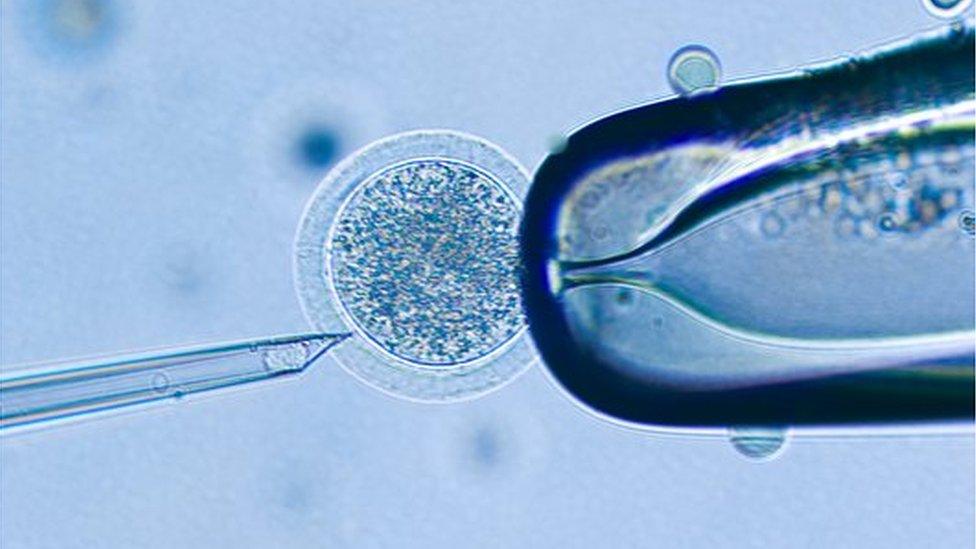
- Published20 June 2017
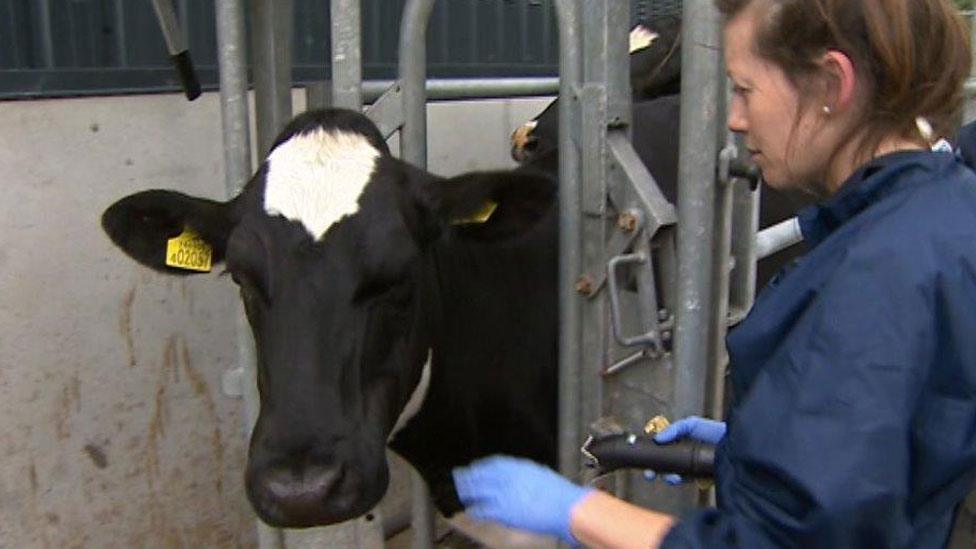
- Published23 May 2017
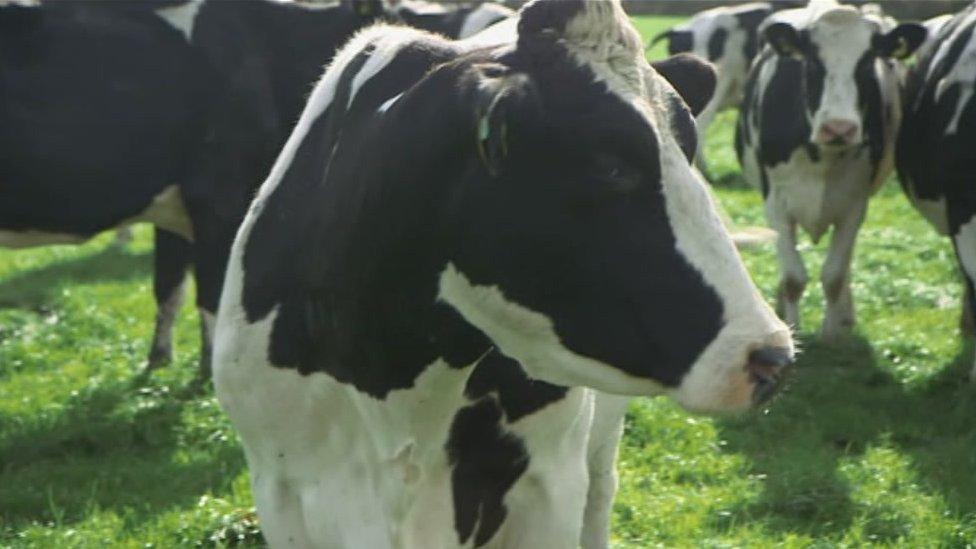
- Published20 June 2017
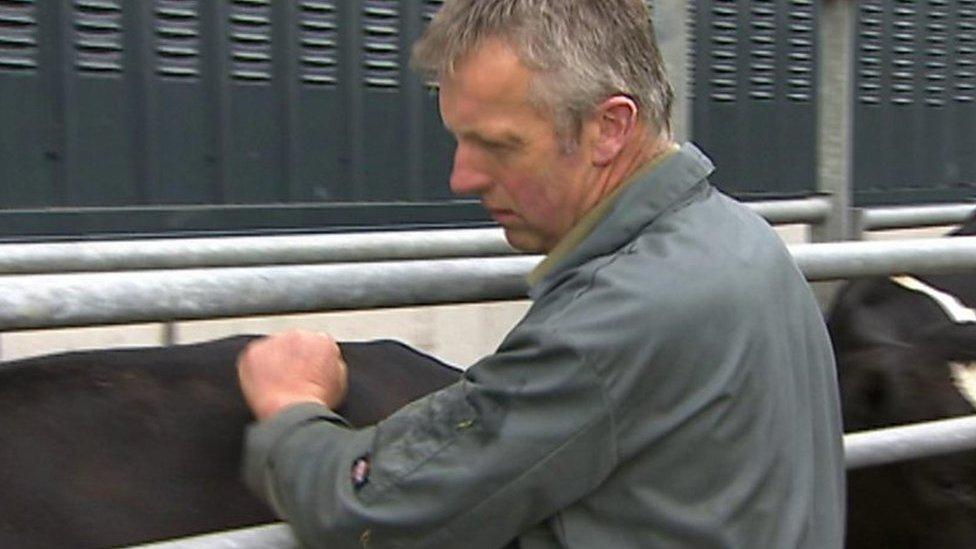
- Published20 July 2016
